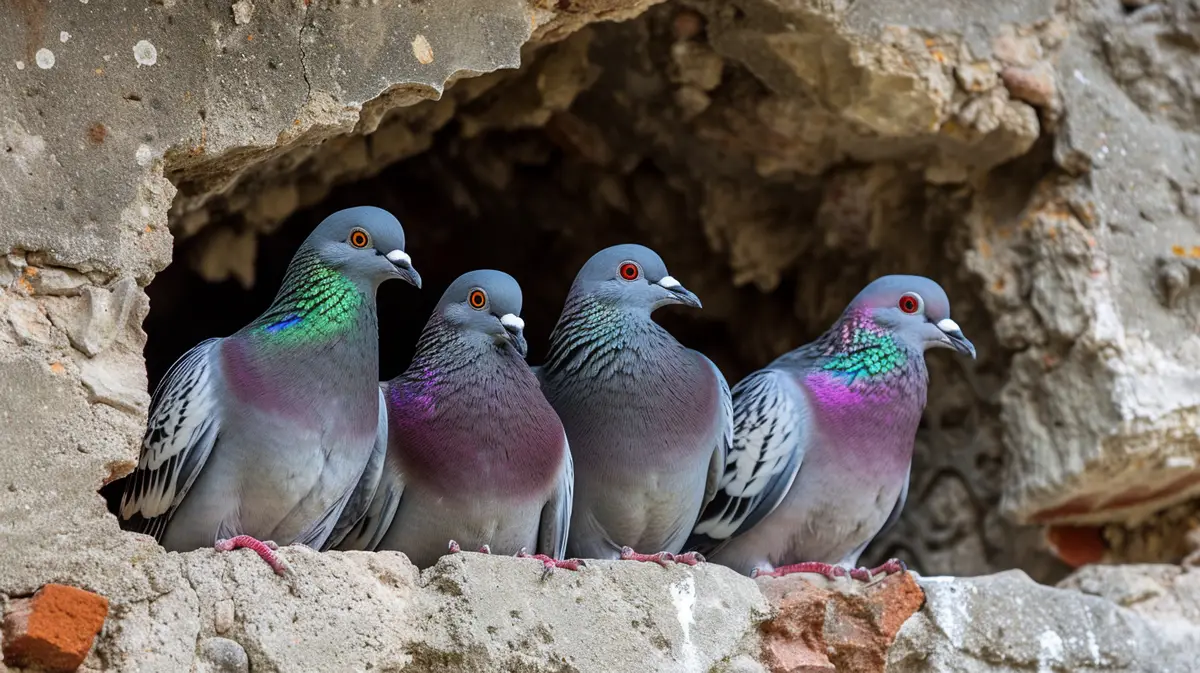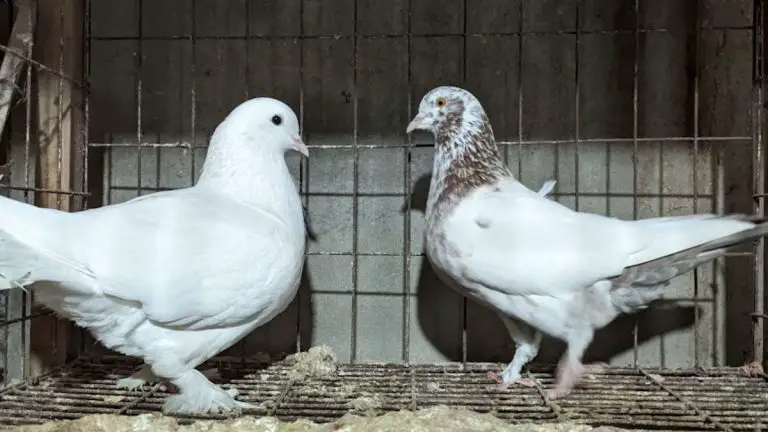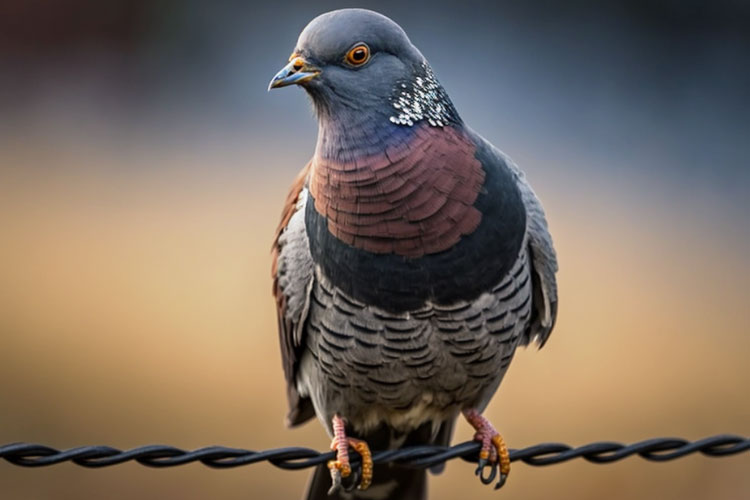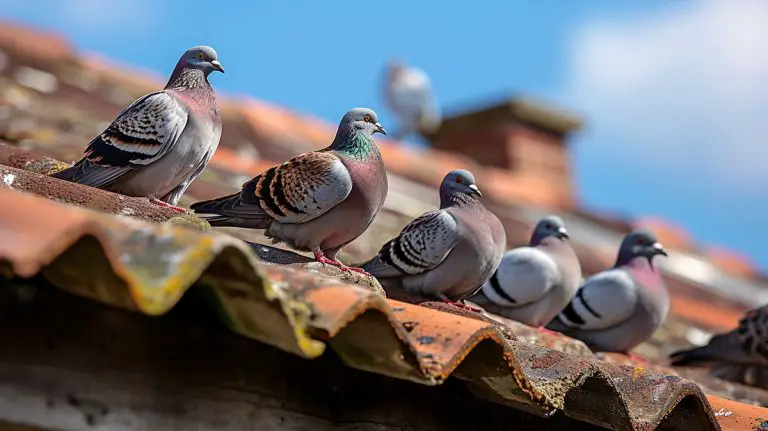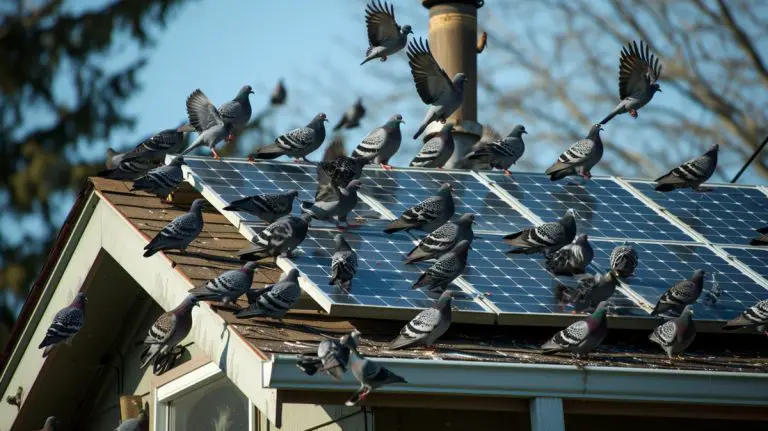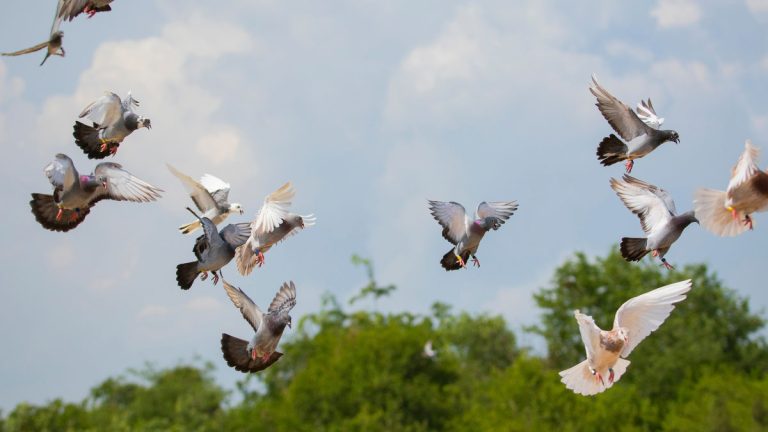Best Pigeon Breeds for Cold Climates
Living in a cold climate can pose unique challenges for pigeon enthusiasts. As someone who has spent years raising and caring for pigeons in chilly temperatures, I understand the importance of selecting the right breed that can thrive in these conditions. In this article, I’ll share my insights and knowledge about pigeon breeds that are well-suited for cold climates. Whether you’re a seasoned pigeon keeper or a beginner looking to start your own flock, this guide will help you make informed decisions and ensure the well-being of your feathered friends in colder regions.
When it comes to choosing pigeon breeds for cold climates, it’s crucial to consider their ability to adapt to low temperatures and withstand harsh weather conditions. In this comprehensive guide, I’ll discuss some of the top pigeon breeds that have proven to be resilient and thrive in colder regions. From the hearty and robust Homing Pigeons to the cold-resistant and feathered-footed Jacobins, I’ll delve into the unique characteristics and traits that make these breeds suitable for cold climates. So, if you’re looking for the perfect pigeon breed to keep in your chilly backyard, keep reading to discover the best options that will ensure the health and happiness of your pigeons throughout the year.
Homing Pigeons: Resilient and Robust
When it comes to pigeon breeds that can thrive in cold climates, homing pigeons are a top choice. These birds are well-known for their impressive ability to navigate long distances and find their way back home, even across challenging terrains. But what makes them particularly well-suited for colder regions? Let’s explore the characteristics that make homing pigeons resilient and robust in cold climates.
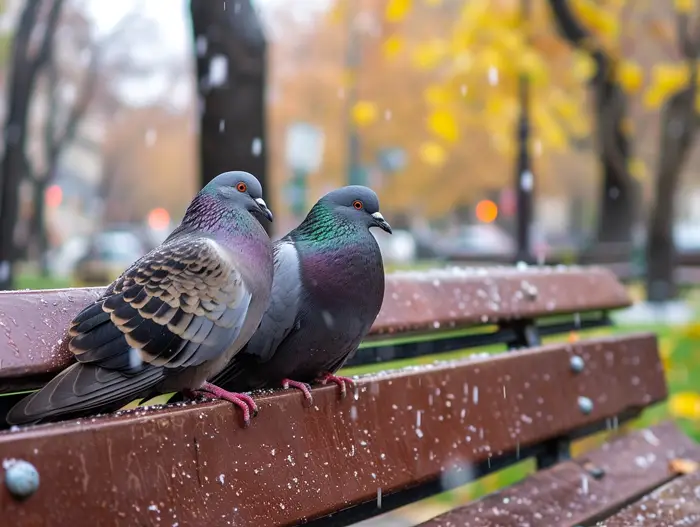
1. Natural navigation skills: Homing pigeons have an innate sense of direction, allowing them to navigate and find their way home even in unfamiliar territory. This remarkable ability helps them overcome the challenges of colder climates, where freezing temperatures and snow can alter their surroundings.
2. Strong endurance: Homing pigeons possess excellent endurance, enabling them to withstand long flights and adverse weather conditions. These birds have powerful flight muscles and a high metabolic rate, providing them with the energy needed to endure low temperatures and strong winds.
3. Thick feathers: The thick plumage of homing pigeons helps insulate them against the cold. Their feathers form a protective layer, trapping warm air close to their bodies and providing insulation against the chill of winter. This natural insulation allows them to maintain their body temperature, even when exposed to freezing temperatures.
4. Robust constitution: Homing pigeons have a robust constitution that allows them to adapt to various climates, including cold environments. Over generations, these birds have been selectively bred for their ability to withstand great temperature variations, making them well-suited for colder regions.
5. Strong immune system: Pigeons, including homing pigeons, have a strong immune system that helps them ward off common illnesses and infections. This robust immunity enables them to stay healthy and thrive even in challenging conditions, including cold climates.
In colder regions, where extreme temperatures and harsh weather conditions can pose challenges for pigeon keepers, choosing the right breed is crucial. Homing pigeons, with their natural navigation skills, endurance, thick feathers, robust constitution, and strong immune system, have proven to be resilient and robust in cold climates. If you’re considering keeping pigeons in a colder region, homing pigeons are an excellent choice to ensure the well-being and success of your feathered friends.
Jacobins: Cold-Resistant and Feathered-Footed
When it comes to choosing pigeon breeds that can thrive in cold climates, one breed that stands out is the Jacobin pigeon. With their unique characteristics and adaptations, Jacobins are well-suited for colder regions. In this section, I’ll delve into the cold-resistant nature and feathered-footed feature of Jacobins that make them a great choice for these climates.
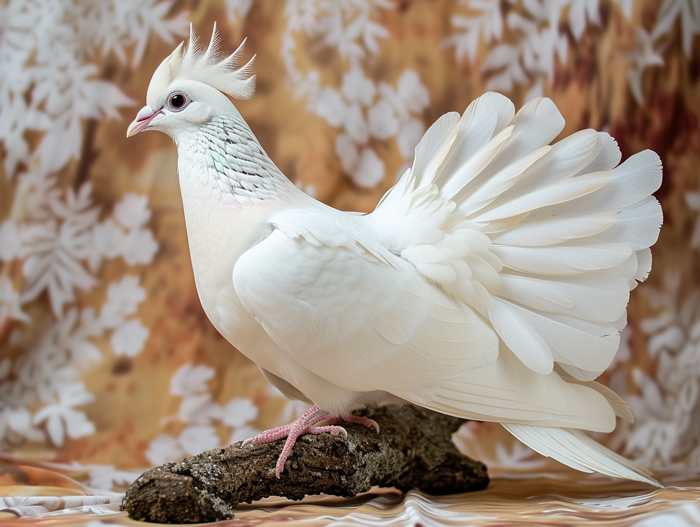
- Cold-Resistant Nature: Jacobins have a remarkable ability to withstand chilly temperatures. They have a dense and fluffy plumage that provides excellent insulation, keeping them warm even in frigid conditions. This is crucial for their survival and well-being in colder regions.
- Feathered-Footed Feature: One distinctive feature of Jacobins is their feathered feet. Unlike other pigeon breeds, Jacobins have beautiful feathering that covers their legs and feet. This unique adaptation serves two purposes. First, it provides extra insulation, protecting their feet from the cold. Second, it helps to keep their feet clean and prevents them from getting wet and cold, which can lead to discomfort and health issues.
The combination of the cold-resistant nature and feathered-footed feature makes Jacobins particularly suited for colder climates. Their ability to stay warm and their well-insulated feet give them an advantage over other pigeon breeds in these regions.
In addition to their physical adaptations, Jacobins are known for their friendly and docile nature. This makes them easier to handle and care for, as they tend to be more tolerant of humans and can adapt well to living in captivity.
Jacobins are an excellent choice for those looking to keep pigeons in colder climates. Their cold-resistant nature, thanks to their dense plumage, and their feathered feet provide them with the necessary tools to thrive in colder regions. If you’re considering keeping pigeons in a cold climate, be sure to consider these wonderful Jacobin pigeons.
Fantails: Cold-Tolerant with Gorgeous Plumage
When it comes to pigeon breeds that are well-suited for cold climates, Fantails are truly a remarkable choice. With their cold-tolerant nature and stunning plumage, they are not only a joy to look at but also robust enough to thrive in colder regions.
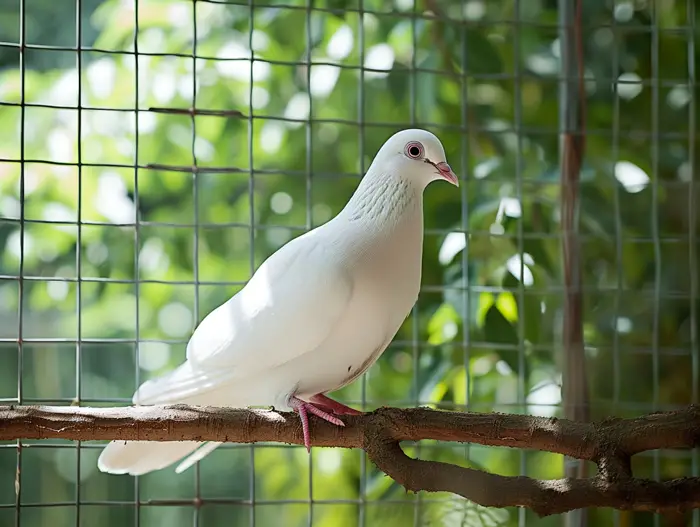
Cold-tolerance: Fantails have evolved to withstand colder temperatures, thanks to their adaptability and resilience. They can comfortably endure chilly climates while maintaining their well-being. This makes them an excellent option for pigeon enthusiasts residing in colder areas.
Gorgeous plumage: One of the most distinguishing features of Fantails is their magnificent plumage. Their long and elegant feathers, displayed in a vibrant array of colors, captivate the eye. This adds a touch of beauty and elegance to any pigeon loft, making Fantails a popular choice among breeders and hobbyists alike.
Adaptability: The adaptability of Fantails is another factor that makes them well-suited for cold climates. Their feather density helps to insulate their bodies and keeps them warm even in chilly weather. This natural adaptation allows them to thrive in colder regions without compromising their overall health and vitality.
Robust constitution: Fantails boast a robust constitution, making them resilient against the challenges posed by cold climates. They have a strong immune system, which helps them ward off common ailments that can affect pigeons in colder regions. This resilience ensures that Fantails can live long, healthy lives even in the harshest of conditions.
Easy to care for: Alongside their cold tolerance and striking appearance, Fantails are also known for their friendly and easy-going nature. They are docile birds, which makes them easier to handle and care for. This trait is particularly advantageous for those who are new to pigeon keeping or have a family with young children.
Fantails are an ideal choice for pigeon enthusiasts living in cold climates. Their cold-tolerant nature, stunning plumage, adaptability, robust constitution, and ease of care make them a perfect fit for colder regions. Whether you are a seasoned breeder or a novice pigeon lover, Fantails will surely bring beauty and joy to your pigeon loft.
Ice Pigeons: Built for Icy Conditions
When it comes to surviving in cold climates, Ice Pigeons are a breed that stands out. These remarkable birds have adapted to thrive in icy conditions, making them a popular choice for pigeon enthusiasts living in chilly regions.
One of the key features that makes Ice Pigeons well-suited for colder climates is their feather density. Their plumage is thick and abundant, providing excellent insulation against the cold. This dense covering helps them retain body heat and stay warm, even in freezing temperatures.
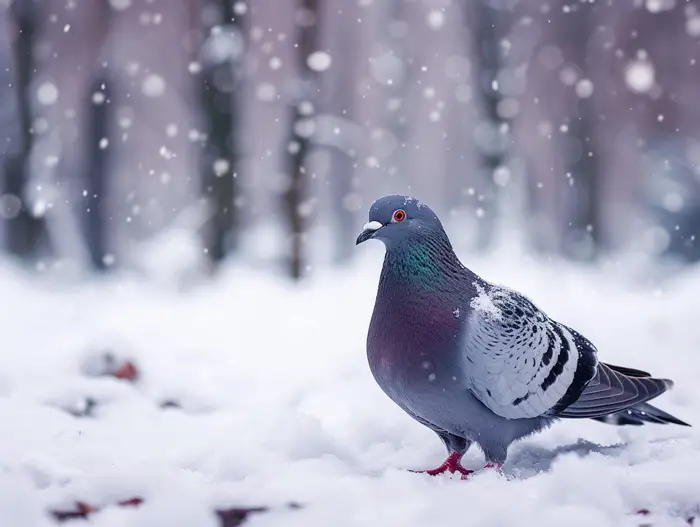
Ice Pigeons also possess unique feathering patterns that contribute to their ability to withstand icy conditions. Their feathers grow in tight, overlapping layers, forming a natural barrier against the cold. This specialized feather structure helps to trap body heat close to their skin, keeping them cozy and comfortable.
In addition to their impressive feathering, Ice Pigeons have strong constitutions that allow them to adapt and thrive in extreme cold. They are highly resistant to harsh weather conditions, and their robust physical health enables them to stay active and healthy even in the coldest of climates.
Another advantage of Ice Pigeons is their remarkable endurance. These birds are known for their ability to fly long distances, even in adverse weather conditions. This exceptional stamina is a valuable asset in icy climates, where they can withstand harsh winds and low temperatures while navigating vast distances.
Ice Pigeons also possess a strong immune system, which helps them resist common illnesses that can be exacerbated by cold weather. Their robust health and well-developed immune system make them less susceptible to diseases and enable them to maintain their overall well-being in frigid conditions.
Ice Pigeons are specifically adapted to thrive in icy conditions. Their dense plumage, specialized feathering, robust health, endurance, and strong immune system make them uniquely suited for colder climates. For pigeon enthusiasts living in chilly regions, Ice Pigeons are a fantastic option to ensure the well-being and success of their feathered friends.
Conclusion: Choosing the Right Pigeon Breed for Cold Climates
After exploring the suitability of different pigeon breeds for cold climates, it is clear that selecting the right breed is crucial for the well-being and success of pigeons in these regions. Homing pigeons, such as Jacobins, Fantails, and Ice Pigeons, have proven to be excellent choices due to their unique characteristics and adaptations.
Jacobins, with their cold-resistant nature and feathered-footed feature, are well-suited for colder climates. Their dense and fluffy plumage provides insulation, while their feathered feet offer extra protection against the cold. Additionally, their friendly and docile nature makes them easier to handle and care for.
Fantails, on the other hand, have evolved to withstand colder temperatures and have a stunning plumage that adds beauty and elegance to any pigeon loft. Their adaptability, robust constitution, and easy-going nature make them an ideal choice for pigeon enthusiasts living in cold climates.
Lastly, the Ice Pigeon breed is specifically adapted to thrive in icy conditions. With their thick and abundant plumage, strong constitutions, remarkable endurance, and a strong immune system, they are uniquely suited for colder climates.
By considering the specific needs and characteristics of different pigeon breeds, pigeon enthusiasts can ensure the well-being and success of their birds in cold climates. Choosing the right breed will provide pigeons with the necessary adaptations and qualities to thrive in these challenging environments.
